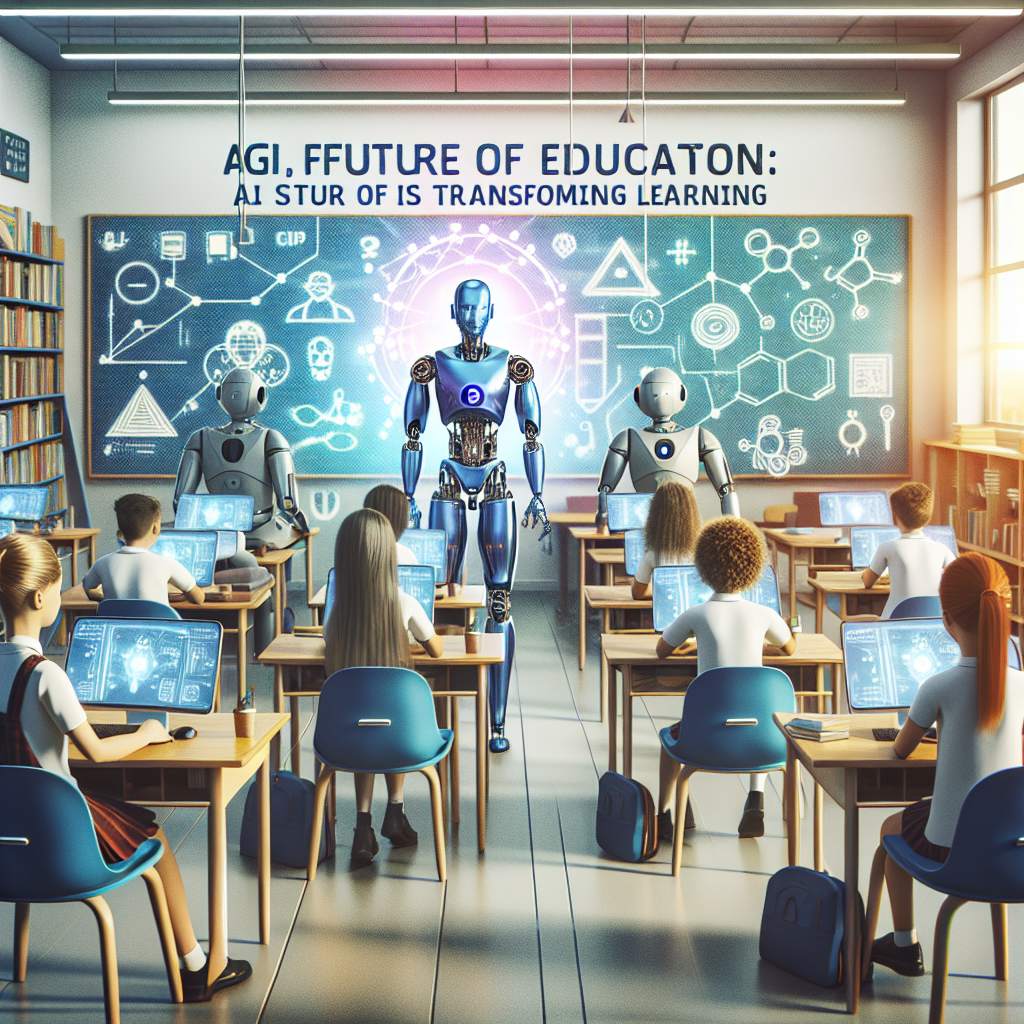Artificial General Intelligence (AGI) is a term that refers to the ability of a machine to perform any intellectual task that a human can do. This type of AI is still in the realm of science fiction, but many believe that it is only a matter of time before AGI becomes a reality. As we look towards this future, it is important to consider how AGI will impact various aspects of our society, including education.
The future of education is likely to be drastically transformed by the advent of AGI. With the ability to process and analyze vast amounts of information in a fraction of the time it takes humans, AGI has the potential to revolutionize the way we learn. From personalized learning experiences to advanced virtual reality simulations, the possibilities are endless.
In this article, we will explore how AI is already shaping the field of education and what the future may hold as AGI becomes a reality. We will also address some frequently asked questions about AGI and its potential impact on education.
AI in Education Today
Artificial Intelligence (AI) is already making waves in the field of education. From adaptive learning platforms to automated grading systems, AI is being used to enhance the learning experience for students of all ages. One of the key benefits of AI in education is its ability to provide personalized learning experiences. By analyzing data on each student’s learning style, pace, and preferences, AI can tailor lessons and assignments to meet the individual needs of each student.
AI is also being used to automate routine tasks in education, such as grading assignments and providing feedback to students. This frees up teachers to focus on more meaningful activities, such as designing engaging lessons and providing one-on-one support to students who need it.
In addition to personalized learning and automation, AI is also being used to create immersive learning experiences through virtual reality (VR) and augmented reality (AR) technologies. These technologies allow students to explore complex concepts in a more interactive and engaging way, leading to deeper understanding and retention of information.
The Future of Education with AGI
As AGI becomes a reality, the future of education is likely to be transformed in ways we can only begin to imagine. One of the most exciting possibilities is the development of truly personalized learning experiences. With the ability to process vast amounts of data in real-time, AGI will be able to analyze each student’s learning style, pace, and preferences to create custom-tailored lessons and assignments that meet their individual needs.
AGI will also enable the development of advanced virtual reality simulations that can provide students with hands-on learning experiences in subjects that are traditionally difficult to teach in a classroom setting. For example, students studying biology could explore the inner workings of a cell in 3D, while students studying history could immerse themselves in a virtual recreation of a historical event.
Another way AGI is likely to transform education is through the automation of routine tasks. With the ability to process and analyze vast amounts of data in real-time, AGI will be able to automate tasks such as grading assignments, providing feedback to students, and even designing personalized lesson plans. This will free up teachers to focus on more meaningful activities, such as providing one-on-one support to students and designing engaging lessons that inspire curiosity and critical thinking.
FAQs about AGI and the Future of Education
Q: What is AGI and how is it different from other types of AI?
A: AGI, or Artificial General Intelligence, refers to the ability of a machine to perform any intellectual task that a human can do. This is in contrast to narrow AI, which is designed to perform specific tasks, such as playing chess or recognizing faces. AGI has the potential to revolutionize many aspects of society, including education.
Q: How will AGI impact the role of teachers in education?
A: AGI is likely to automate many routine tasks in education, such as grading assignments and providing feedback to students. This will free up teachers to focus on more meaningful activities, such as designing engaging lessons and providing one-on-one support to students who need it.
Q: Will AGI replace human teachers?
A: While AGI has the potential to automate many routine tasks in education, it is unlikely to completely replace human teachers. Teachers play a crucial role in inspiring curiosity, critical thinking, and creativity in students, and this human touch is unlikely to be replicated by machines.
Q: How can educators prepare for the future of education with AGI?
A: Educators can prepare for the future of education with AGI by embracing new technologies and learning how to integrate them into their teaching practices. By staying up-to-date on the latest developments in AI and education, educators can ensure that they are prepared to harness the power of AGI to enhance the learning experience for their students.
In conclusion, the future of education with AGI is likely to be transformative. From personalized learning experiences to advanced virtual reality simulations, the possibilities are endless. By embracing new technologies and staying up-to-date on the latest developments in AI and education, educators can ensure that they are prepared to harness the power of AGI to enhance the learning experience for their students.

